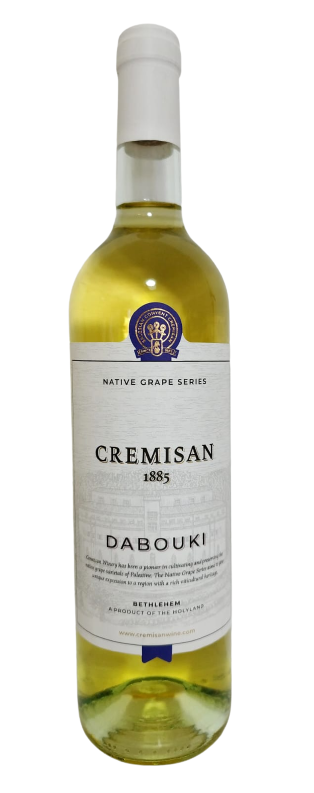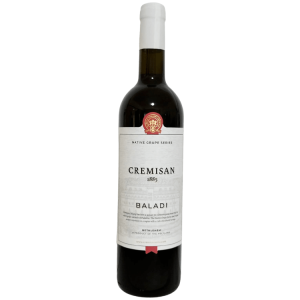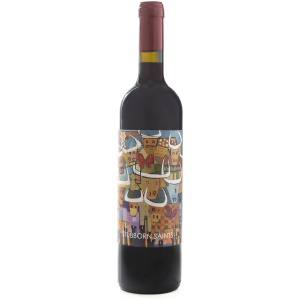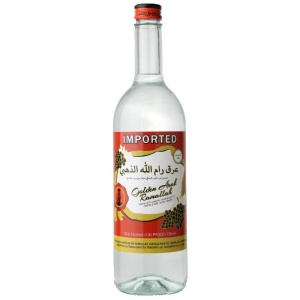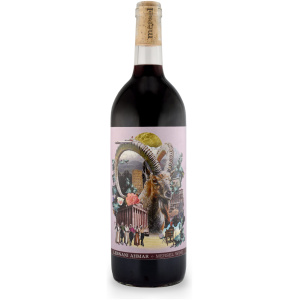Description
About the wine
Place: Cremisan Valley, Bethlehem, Palestine (800m)
Grapes: 100% Dabouki, an indigenous Palestinian white grape
Soil: Limestone
Alcohol: 13% abv
Farming: dry farmed, hand pruned and harvested
Production: 10,000 bottles (750ml)
Grape Yield: 15hL/Ha
Winemaking: Hand picked in mid September. The grapes are destemmed and soft pressed into stainless tanks. The juice is fermented with carefully chosen yeasts and left to age on lees for 4-6 months. The juice is filtered twice before bottling. Straw yellow color with high acidity and minerality. Notes of Dead Sea salt, lime zest, melon, and apricot.
Tasting Notes: Notes of Dead Sea salt, lime zest, melon, and apricot.
Pairings: Fattoush, Pesto Genovese, summer time vibes by the water
Previous Awards: 2013 vintage was awarded 89 points by Wine Spectator

